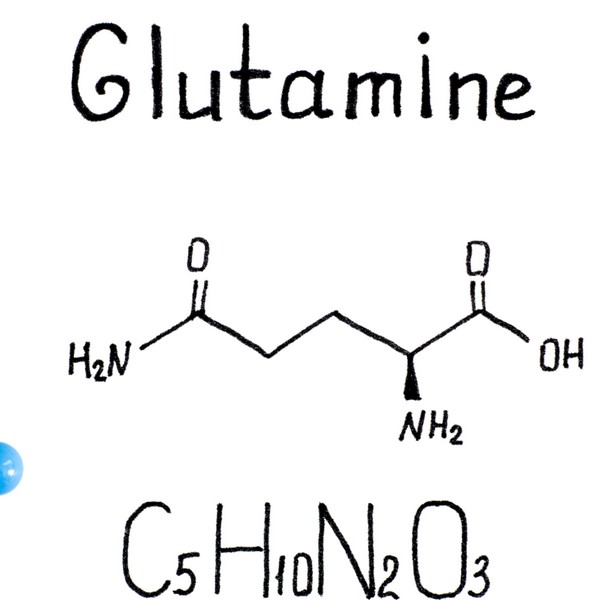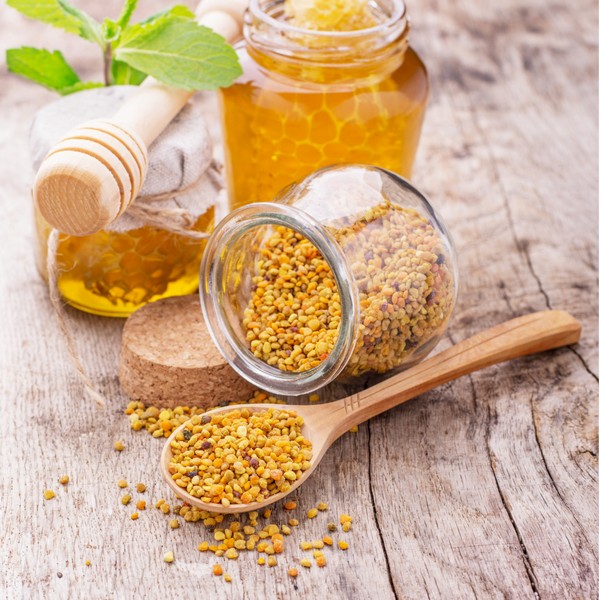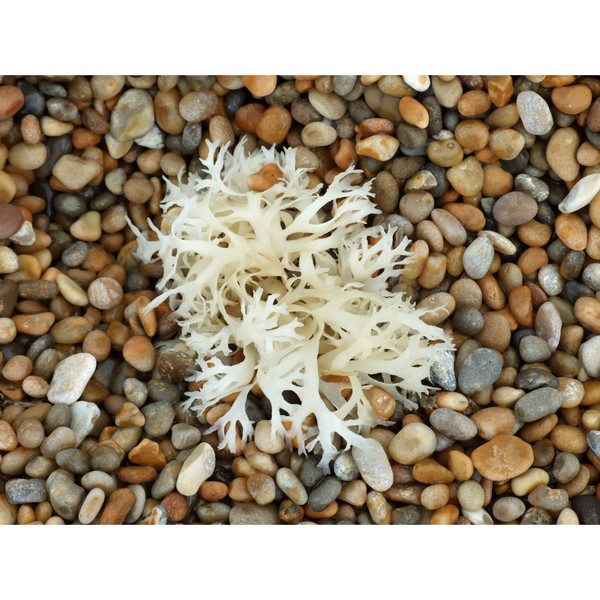Key Takeaways
- L-Glutamine is essential for gut health.
- Benefits include improved digestion and reduced inflammation.
- Potential side effects are rare but can occur in high doses.
Understanding L-Glutamine

L-Glutamine is an amino acid found abundantly in the body. It plays a pivotal role in various bodily functions, especially in maintaining gut health. This amino acid can be obtained through diet or supplements.
Natural sources of L-Glutamine include high-protein foods like beef, chicken, fish, eggs, and dairy products. Some vegetables, such as spinach and cabbage, also contain L-Glutamine.
L-Glutamine is vital for gut health because it serves as a building block for proteins and supports the immune system.
Benefits of L-Glutamine for Gut Health
Enhancing Gut Barrier Function
L-Glutamine strengthens the intestinal lining, which helps prevent leaky gut syndrome. This condition occurs when the gut lining becomes permeable, allowing toxins and bacteria to enter the bloodstream.
Reinforcing the gut barrier helps maintain overall digestive health.
Supporting Digestive Health

L-Glutamine improves digestion and nutrient absorption. It is beneficial for individuals with conditions like irritable bowel syndrome (IBS) and inflammatory bowel disease (IBD).
Supporting the cells of the small intestine, this amino acid enhances their function.
Reducing Inflammation
L-Glutamine possesses anti-inflammatory properties, which help manage gut-related inflammatory conditions. Reducing inflammation in the gut can alleviate symptoms associated with chronic digestive issues.
Regular intake of L-Glutamine can lead to noticeable improvements in gut health.
Promoting Healing and Recovery
L-Glutamine aids in the repair of the gut lining, making it beneficial for individuals with gut injuries or those recovering from surgeries. It supports the regeneration of cells in the intestinal lining.
This healing property is particularly important for maintaining long-term gut health.
Natural Sources

High-glutamine foods include beef, chicken, fish, eggs, and dairy products. These animal-based sources provide a rich supply of L-Glutamine. Ensure these foods are in your diet to support overall gut health naturally.
Vegetables like spinach, cabbage, and beets also contain L-Glutamine. Including a variety of these foods can help maintain adequate levels of this essential amino acid.
Who Should Consider L-Glutamine Supplementation?

Individuals with specific gut health issues, such as IBS or IBD, may benefit from L-Glutamine supplementation. Athletes and people with high physical stress levels also find it advantageous for recovery and performance enhancement.
Those recovering from gut-related surgeries can benefit from its healing properties. However, consultation with a healthcare provider is crucial before beginning supplementation.
Dosage Recommendations

Suggested daily intake varies based on individual health needs. For general gut health maintenance, 5 grams per day is often recommended.
Athletes or those recovering from gut-related surgeries may require higher doses. Consulting with a healthcare provider ensures appropriate dosage for specific conditions.
L-Glutamine supplements come in various forms, including powders, capsules, and liquids. Choosing the right form depends on personal preference and convenience.
Potential Side Effects of L-Glutamine
Side Effects
L-Glutamine is generally well-tolerated by most people. However, some individuals might experience mild digestive discomfort. Symptoms can include nausea, stomach pain, and bloating.
Allergic reactions are rare but possible. If any allergic symptoms occur, it is important to discontinue use and seek medical advice.
High Dose Risks
Overconsumption of L-Glutamine can lead to more serious side effects. High doses may result in dizziness, headache, and joint pain. Ensuring proper dosing is crucial to avoid these risks.
Long-term use of excessive amounts can potentially cause metabolic issues. It is advisable to adhere to recommended dosages.
Interactions with Medications
L-Glutamine might interact with certain medications. It is essential to consult a healthcare professional before starting supplementation, especially for individuals taking other drugs.
Specific interactions can alter the effectiveness of medications or cause unexpected side effects.

Conclusion
L-Glutamine is essential for maintaining a healthy gut. It strengthens the gut barrier, supports digestive health, reduces inflammation, and promotes healing and recovery. While generally safe, potential side effects and interactions with medications highlight the importance of proper dosing and professional consultation.
FAQs
What is L-Glutamine?
L-Glutamine is an amino acid vital for various bodily functions, including gut health. It supports the immune system and serves as a building block for proteins.
Can L-Glutamine help with leaky gut syndrome?
Yes, it helps strengthen the intestinal lining, potentially preventing leaky gut syndrome. Strengthening the gut barrier is one of its key benefits.
Are there any side effects of taking L-Glutamine?
Mild digestive discomfort and allergic reactions are possible; high doses may lead to more serious effects. It’s essential to follow recommended dosages.
How much L-Glutamine should I take daily?
The recommended dosage varies; it’s best to consult with a healthcare provider for personalized advice. For general maintenance, 5 grams per day is often suggested.
Which foods are high in L-Glutamine?
Foods like beef, chicken, fish, eggs, and dairy products are rich in L-Glutamine. Some vegetables, such as spinach and cabbage, also contain this amino acid.
Who should consider L-Glutamine supplementation?
Individuals with gut health issues, athletes, and those recovering from gut-related surgeries might benefit. Always consult with a healthcare provider before starting supplementation.
Research
Al-Asmakh, M., Anuar, F., Zadjali, F., Rafter, J. and Pettersson, S., 2012. Gut microbial communities modulating brain development and function. Gut Microbes, [online] 3(4), pp.366–373.
https://doi.org/10.4161/gmic.21287.
Crawford, J. and Cohen, H.J., 1985. The essential role of L‐glutamine in lymphocyte differentiation in vitro. Journal of cellular physiology, 124(2), pp.275-282.
Dai, Z.L., Li, X.L., Xi, P.B., Zhang, J., Wu, G. and Zhu, W.Y., 2013. L-Glutamine regulates amino acid utilization by intestinal bacteria. Amino acids, 45, pp.501-512.
de Souza, A.Z.Z., Zambom, A.Z., Abboud, K.Y., Reis, S.K., Tannihao, F., Guadagnini, D., Saad, M.J. and Prada, P.O., 2015. Oral supplementation with L-glutamine alters gut microbiota of obese and overweight adults: A pilot study. Nutrition, 31(6), pp.884-889.
https://www.sciencedirect.com/science/article/abs/pii/S0899900715000350
Deters, B.J. and Saleem, M., 2021. The role of glutamine in supporting gut health and neuropsychiatric factors. Food Science and Human Wellness, 10(2), pp.149-154.
Holecek, M., 2013. Side effects of long‐term glutamine supplementation. Journal of parenteral and Enteral Nutrition, 37(5), pp.607-616.
Legault, Z., Bagnall, N. and Kimmerly, D.S., 2015. The influence of oral L-glutamine supplementation on muscle strength recovery and soreness following unilateral knee extension eccentric exercise. International journal of sport nutrition and exercise metabolism, 25(5), pp.417-426.
Li, J., Bai, J., Yang, Y. and Wu, Z., 2024. Low-protein diet supplemented with 1% L-glutamine improves growth performance, serum biochemistry, redox status, plasma amino acids, and alters fecal microbiota in weaned piglets. Animal Nutrition, 17, pp.144-154.
Nia, F.R., Farzaneh, E., Damirchi, A. and Majlan, A.S., 2013. Effect of L-glutamine supplementation on electromyographic activity of the quadriceps muscle injured by eccentric exercise. Iranian journal of basic medical sciences, 16(6), p.808.
Opara, E.C., Petro, A., Tevrizian, A., Feinglos, M.N. and Surwit, R.S., 1996. L-glutamine supplementation of a high fat diet reduces body weight and attenuates hyperglycemia and hyperinsulinemia in C57BL/6J mice. The Journal of nutrition, 126(1), pp.273-279.
Piattoly, T.J., 2005. L-glutamine supplementation: Effects on recovery from exercise. Louisiana State University and Agricultural & Mechanical College.
Rao, R. and Samak, G., 2012. Role of glutamine in protection of intestinal epithelial tight junctions. Journal of epithelial biology & pharmacology, 5(Suppl 1-M7), p.47.
Ren, W., Duan, J., Yin, J., Liu, G., Cao, Z., Xiong, X., Chen, S., Li, T., Yin, Y., Hou, Y. and Wu, G., 2014. Dietary L-glutamine supplementation modulates microbial community and activates innate immunity in the mouse intestine. Amino Acids, 46, pp.2403-2413.
Todero, A., 2014. THE BENEFITS OF L-GLUTAMINE SUPPLEMENTATION IN ATHLETES. Journal of Australian Strength & Conditioning, 22(1).
Wernerman, J. (2008). Clinical Use of Glutamine Supplementation. The Journal of Nutrition, 138(10), 2040S-2044S.
https://doi.org/10.1093/jn/138.10.2040S
Wischmeyer, P.E. (2003). Clinical Applications of l-Glutamine: Past, Present, and Future. Nutrition in Clinical Practice, 18(5), 377-385.
https://doi.org/10.1177/0115426503018005377
Zhou, Q., Verne, M.L., Fields, J.Z., Lefante, J.J., Basra, S., Salameh, H. and Verne, G.N., 2019. Randomised placebo-controlled trial of dietary glutamine supplements for postinfectious irritable bowel syndrome. Gut, 68(6), pp.996-1002.
https://doi.org/10.1136/gutjnl-2017-315136
Zuhl, M.N., Lanphere, K.R., Kravitz, L., Mermier, C.M., Schneider, S., Dokladny, K. and Moseley, P.L., 2014. Effects of oral glutamine supplementation on exercise-induced gastrointestinal permeability and tight junction protein expression. Journal of applied physiology, 116(2), pp.183-191.
Postbiotics: What They Are and Why They Are Important
Key Takeaways Postbiotics 101: They’re beneficial by-products from probiotics that consume prebiotics Boosts Immunity: Postbiotics sharpen your immune system, helping fight off pathogens and reducing…
Conjugated Linoleic Acid (CLA): Benefits & Sources
Key Takeaways CLA is a type of fatty acid found primarily in animal products like beef and dairy. Known for potential benefits such as weight…
Medium Chain Triglycerides (MCTs): Uncovering 5 Health Benefits
This potent, natural source of energy has gained considerable attention in recent years for its impressive array of benefits. MCT oil is a versatile addition…
TUDCA Benefits for Health
Taurine: The Mighty Amino Acid for Optimal Health
Key Takeaways Taurine supports heart health, regulates blood pressure, and reduces oxidative stress. Essential for muscle function, brain health, and cognitive function. Aids in insulin…
Berberine Has 11 More Incredible Benefits Than You Thought
Berberine is a compound found in several plants that has been used for centuries in traditional Chinese medicine and Ayurveda. It has recently gained popularity…
L-Carnitine: Benefits, Dosage, and Side Effects
Key Takeaways L-Carnitine supports fat metabolism and energy production. Benefits include enhanced exercise performance and improved heart health. Proper dosing minimizes potential side effects. Understanding…
Vitamin E Complex
Key Takeaways Vitamin E is a powerful antioxidant that protects cells from oxidative damage, reducing the risk of chronic diseases. The vitamin E complex includes…
Trimethylglycine TMG: Betaine Anhydrous Explained
Key Takeaways Betaine Anhydrous (TMG) is a compound found naturally in various foods and offers several health benefits. TMG supports liver health by reducing fatty…
Creatine Myths Debunked: Separating Fact from Fiction
Key Takeaways Common myths about creatine, such as it causing kidney damage, weight gain, and being a steroid, are widespread but unsupported by scientific evidence….
Spirulina: Health Benefits and Uses
Key Takeaways Spirulina boosts immune function with its high nutrient content and antioxidant properties. Rich in proteins and essential vitamins, enhances overall nutrition. Helps reduce…





















